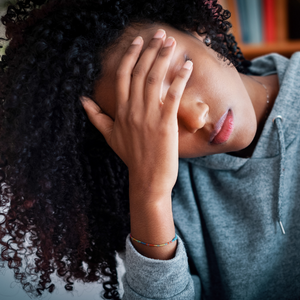Phobia

A phobia is a type of anxiety disorder, an extreme form of fear or anxiety which can be triggered by a particular situation or object.
A situation that triggers a phobia might be standing on a balcony in a multi-story building and even though you know it is safe, you are scared to go out onto the balcony. An object that triggers a phobia might be a spider that you know isn’t poisonous or that it probably won’t bite but you are still anxious about being bitten. You may even feel anxious thinking about or talking about the situation.
Fear is a normal response to a particular situation or object but a fear becomes a phobia when the fear is out of proportion to the danger, it lasts for more than six months and it has a significant impact on your daily life. It might be time to ask for help if you are experiencing any or a combination of these.
Tips that can help with phobias
Talk to someone you trust
This could be a friend, a teacher or family member. Being listened to and sharing your worries can help you understand what might be happening. If you find it hard to talk then try writing your worries down as this can also help make sense of what might be happening.
Manage your panic and anxiety
Learn relaxation and coping techniques to help build resilience which could include meditation, breath control or stretching exercises such as yoga or Qigong, a Chinese tradition, which combines all three.
Coping methods for when you are feeling panicked by your phobia might include breath work. Try long slow breaths in and out through your nose – perhaps try a count of four in and count of eight out and see if that helps you better cope. Or try square breathing which can be easier to remember – through your nose, breathe in for a count of four, hold for four, out for four and hold for four and continue for a minute or so. Stomping or jogging on the spot to distract your thoughts and regulate your breathing can also be helpful.
Self referral
Our resources section provides some self-help websites, some of them accept direct self-referrals from you, but if you would like a mental health nurse to review your self-referral and provide some further guidance, please click on Do Self Referral. We hope to contact you within 28 days. If you haven’t heard from us after this, call your GP.
Do Self Referral

Self help resources
Resources can be accessed below.
View self help resources

















